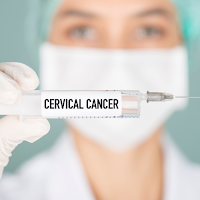If you or a loved one has recently been diagnosed with cancer, finding the right oncologist is crucial. A good oncologist can make all the difference in your treatment, helping you to navigate the complex process of diagnosis, treatment, and recovery. If you live in South Delhi, you're in luck—there are many excellent oncologists in the area who can help you on your cancer journey. In this blog, we'll take a look at some of the Best Oncologists for Cancer Diagnosis in South Delhi. A cancer diagnosis can be a frightening experience. It is a moment that changes your life forever. At the same time, understanding what happens during a cancer diagnosis can help you prepare for what lies ahead.
Here is a step-by-step guide on what to expect during a cancer diagnosis.
Medical History and Physical Exam
The first step in a cancer diagnosis is a medical history and physical exam. Your doctor will ask you questions about your health history, including any symptoms you have been experiencing. They will then conduct a physical exam to look for any signs of cancer.
Imaging Tests
If your doctor suspects you may have cancer, they will likely order imaging tests to get a better look at the inside of your body. These tests may include:
X-rays
CT scans
MRI scans
PET scans
Ultrasound
Imaging tests can help your doctor see any abnormalities in your body that may be caused by cancer.
Biopsy
If imaging tests reveal an abnormality, your doctor may order a biopsy. During a biopsy, a small amount of tissue is removed from the affected area and sent to a lab for analysis. This is the only way to definitively diagnose cancer.
There are several types of biopsies, including:
Needle biopsy
Endoscopic biopsy
Open biopsy
The type of biopsy you receive will depend on the location and size of the abnormality.
Pathology Report
After your biopsy, the tissue sample is sent to a pathologist for analysis. The pathologist will look at the tissue under a microscope to determine if it is cancerous, and if so, what type of cancer it is.
The pathology report will provide important information about your cancer, including the stage of the cancer and whether it has spread to other parts of your body.
Staging
Staging is the process of determining how advanced the cancer is and whether it has spread to other parts of the body. Your doctor will use information from imaging tests, pathology reports, and physical exams to determine the stage of your cancer.
Cancer is typically staged on a scale from 0 to 4, with stage 0 being the earliest and stage 4 being the most advanced.
Treatment Planning
Once your cancer has been diagnosed and staged, your doctor will develop a treatment plan. The type of treatment you receive will depend on the type and stage of your cancer, as well as your overall health.
Treatment options may include:
Surgery
Radiation therapy
Chemotherapy
Immunotherapy
Targeted therapy
Hormone therapy
Your doctor will discuss the risks and benefits of each treatment option with you and help you make an informed decision about your care.
Follow-Up Care
After your initial treatment, you will need to undergo regular follow-up care to monitor your cancer and make sure it does not come back. Your doctor may order imaging tests or other tests to check for any signs of cancer.
In conclusion, a cancer diagnosis is a complex and often scary process, but understanding what happens during a cancer diagnosis can help you feel more prepared for what lies ahead. Remember to communicate openly with your doctor and ask questions about any aspect of your care that you do not understand. With the right care and treatment, many people are able to successfully manage their cancer and lead full, healthy lives. If you want any consultation regarding cancer diagnosis you can contact the Best Cancer Doctor Diagnosis In South Delhi i.e Dr. Dodul Mondal.








.png)

